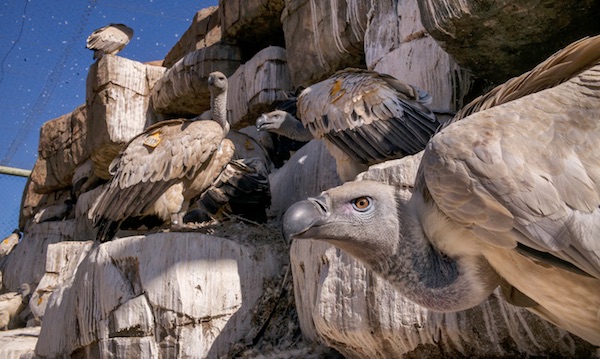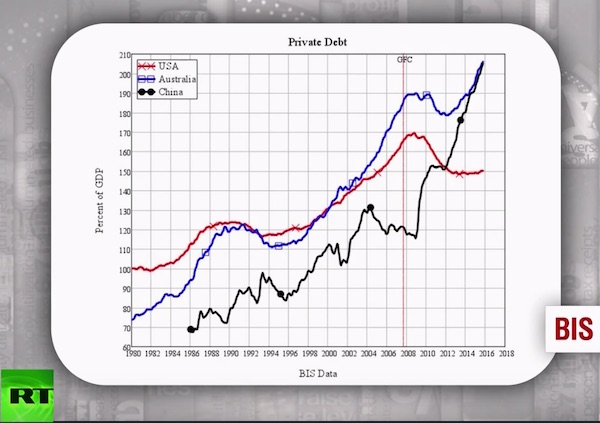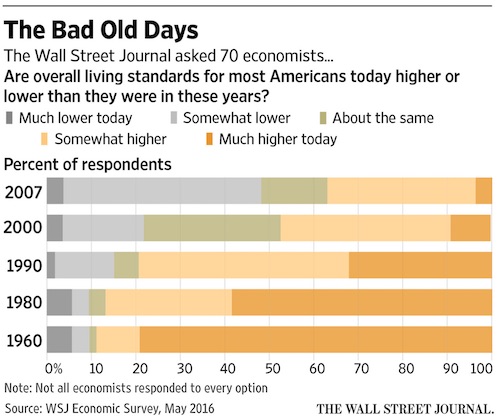
‘Papa says they won’t hurt us’

“..the bank and its senior executives had no scruples about effectively looting cash and assets from business customers..”
• RBS ‘Dash For Cash’ Scandal: 500 Firms Suing Bank Turn On Regulator (Herald)
A group of almost 500 businesses suing the Royal Bank of Scotland for allegedly destroying their firms and seizing their assets is threatening legal action against the Financial Conduct Authority if it does not immediately publish its long-awaited report into the scandal. The central allegation of the so-called “Dash for Cash” scandal was that firms – in some cases healthy ones – were preyed on by RBS which effectively bankrupted the companies, bought the assets and made a profit from their suffering. RBS denies the allegations. David Stewart, spokesman for the RBS GRG Business Action Group, said:“Unless the FCA gives an immediate commitment to publishing the Section 166 report, we will initiate judicial review proceedings against them.” The FCA, the financial regulator, launched a probe into the Dash for Cash scandal in January 2014.
The report, produced by consultants Promontory and Mazars, was handed to the FCA in late summer but the regulator only confirmed receipt on October 5. “We understand the S166 report recommends a compensation scheme for affected firms,” said Stewart. “It is essential that this scheme is independent and judicial, with full redress for consequential losses, and that it is not overseen by the FCA. We have no confidence in the regulator, given its previous compensation schemes have failed so many victims.” The FCA stated: “There are a number of steps for the FCA to complete before we are in a position to share our final findings, which will include an assessment of all relevant material, of which the skilled person’s report is one. This has been a complex and lengthy review – it is therefore important that we do not rush the final stages of this process.”
[..] Kalvin Chapman, a partner at lawyers Muldoon Britton, said the Dash for Cash email sent out by RBS regional director Rhydian Davies on October 9, 2008 proves that the bank and its senior executives had no scruples about effectively looting cash and assets from business customers of RBS, NatWest and Ulster Bank. “It only cared about scalping customers and bleeding them dry,” said Chapman.

Yay! More finger pointing opportunities. Blame thy neighbor!
• Scrambled Brexit Communications Worry UK Bankers (BBG)
A British bank executive recently approached Prime Minister Theresa May’s office with a question. The Treasury said it was the point of contact for discussing Brexit issues. The Department for Exiting the European Union said the same thing. Who was right? Neither, he was told. Talk to us instead. That story, retold by a banker who asked to remain anonymous, is symptomatic of industry complaints about engaging with May’s government as it begins pulling Britain out of the European Union. May has already put financiers on notice that they’re losing their privileged perch in policy making considerations, so the communications confusion only serves to deepen their anxiety.
“The government needs to develop a more strategic and joined-up approach around financial services,” said Andrew Gray, head of Brexit for U.K. financial services at PricewaterhouseCoopers in London. “There are a number of different government departments seeking to get their voices heard on Brexit, and that’s resulting in some rather mixed messages being delivered.” The portrait of bungled communications, which could prompt banks to accelerate the movement of highly paid jobs from London, emerged from interviews with government officials, bankers and lobbyists. Financial services account for almost 12% of the economy, more than 1 million jobs and over 60 billion pounds ($73 billion) of annual tax revenue.

In case you still weren’t clear on what’s wrong with Britain: “This is good work, normal work for us,” he said with a smile. “It is not hard.” but “It’s unskilled labour so [locals] do not want to do that kind of work.”
• Fresh British Veg ‘Could Be Wiped Out By Brexit’ (Sky)
A leading farmer has warned that British vegetables will disappear from supermarket shelves if post-Brexit immigration controls prevent thousands of Eastern Europeans from working in the UK. Guy Poskitt, who grows 80,000 tons of carrots and parsnips a year in Yorkshire, says it is impossible to find enough British labourers to do the work. Last year the number of EU nationals in the UK rose by an estimated 180,000 but the Government is committed to reducing total immigration to the tens of thousands. “If you took migrant workers out of the supply chain you would within five days have no fresh British produce on the supermarket shelves,” Mr Poskitt claimed.
He told Sky News he pays agencies £9.50 per hour for temporary labourers and that without workers from Eastern Europe the industry would collapse. “[My business] would have to close; we could not serve our customers without the availability of migrant workers,” he said. Picking pumpkins from a nearby field for supply to major supermarkets, a group of Czech labourers said they are puzzled about why some people say they are no longer welcome. “I take home £50 or £60 a day here but just £30 for work in Prague,” said 21-year-old Patrick Dumka, as he stood in the muddy field that is his workplace for nine hours a day. He picks more than 1,000 pumpkins during each shift in all weathers, taking just an hour’s rest in a makeshift shelter, and joked that the British are too lazy to do the work.
“This is good work, normal work for us,” he said with a smile. “It is not hard.” Mark Straw whose firm Abbey Personnel Services supplies labourers to Yorkshire farms claims there is no alternative to Eastern European labour. From his office in Selby he hires and transports 200 Eastern Europeans to work each day, and says locals will not take the jobs on offer in agriculture. “It’s outdoor, it’s physical, you would say that there are little prospects for advancement,” he explained. “It’s unskilled labour so [locals] do not want to do that kind of work.”

You do realize that a Hillary vote is a vote for Nuland, right?! Secretary of State has been mentioned for her.
• Athens Protests Victoria Nuland Statement On Treaty Of Lausanne (Kath.)
Greek Ambassador to the USA Theocharis Lalacos has lodged a complaint with US Assistant Secretary of State Victoria Nuland in reaction to the US State Department’s response to a question on the Treaty of Lausanne. Questioned by a Greek journalist earlier this month about Turkish President Recep Tayyip Erdogan’s controversial comments on the 1923 peace pact which set the borders of modern Turkey, the State Department issued a written statement urging Athens and Ankara to work together in order to maintain good-neighborly relations and safeguard peace in the region. Diplomatic sources said the Greek ambassador protested to Nuland that the vague statement issued by the US State Department had caused unnecessary concern among the Greek public.
Lalacos suggested that US officials should instead have urged all sides to respect international law, according to the same sources. He allegedly said that the Lausanne Treaty concerns all states in the region, and not just Greece. Sources said Nuland vowed to investigate the issue further. “In Lausanne, we gave away the islands that you could shout across to,” Erdogan said on September 29, referring to Greek islands located in the Aegean Sea close to the Turkish coastline.

CIA and NSA are not be doubted. Nobody ever did before. They don’t have to present any proof either. And they’re fully impartial at all times.
• Trump’s Refusal To Accept Intelligence Briefing On Russia Stuns Experts (WaPo)
Former senior U.S. national security officials are dismayed at Republican presidential candidate Donald Trump’s repeated refusal to accept the judgment of intelligence professionals that Russia stole files from the Democratic National Committee computers in an effort to influence the U.S. election. The former officials, who have served presidents in both parties, say they were bewildered when Trump cast doubt on Russia’s role after receiving a classified briefing on the subject and again after an unusually blunt statement from U.S. agencies saying they were “confident” that Moscow had orchestrated the attacks. “It defies logic,” retired Gen. Michael Hayden, former director of the CIA and the National Security Agency, said of Trump’s pronouncements.
Trump has assured supporters that, if elected, he would surround himself with experts on defense and foreign affairs, where he has little experience. But when it comes to Russia, he has made it clear that he is not listening to intelligence officials, the former officials said. “He seems to ignore their advice,” Hayden said. “Why would you assume this would change when he is in office?” Several former intelligence officials interviewed this week believe that Trump is either willfully disputing intelligence assessments, has a blind spot on Russia, or perhaps doesn’t understand the nonpartisan traditions and approach of intelligence professionals.
[..] During the second presidential debate, Trump ignored what a U.S. government official said the candidate learned in a private intelligence briefing: that government officials were certain Russia hacked the DNC. That conclusion was followed by a public and unequivocal announcement by the Office of the Director of National Intelligence and the Department of Homeland Security that Russia was to blame.

Crazy US allegations will come home to roost. And bite.
• Russia Slams ‘Unprecedented’ US Threats Over Cyber Attacks (AFP)
The Kremlin on Saturday slammed Washington for its “unprecedented” threats against Moscow over an alleged series of cyber attacks and vowed to respond. Last week, Washington formally accused the Russian government of trying to “interfere” in the 2016 White House race through cyber attacks on American political institutions. And on Friday, US Vice President Joe Biden told NBC a “message” would be sent to Russian President Vladimir Putin over the alleged hacking, with the channel saying the CIA was preparing a retaliatory cyber attack “designed to harass and ’embarrass’ the Kremlin leadership.” Kremlin spokesman Dmitry Peskov immediately denounced Biden’s remarks, saying Moscow would take precautions to safeguard its interests in the face of the increasing “unpredictability and aggressiveness of the United States”.
“The threats directed against Moscow and our state’s leadership are unprecedented because they are voiced at the level of the US vice president,” RIA Novosti news agency quoted him as saying. “To the backdrop of this aggressive, unpredictable line, we must take measures to protect (our) interests, to hedge risks.” And Kremlin aide Yuri Ushakov vowed Moscow would respond to any US cyber attacks, saying such threats were “borderline insolence”, the news agency said. In the NBC interview, excerpts of which were released late Friday, Biden said Washington would respond “at the time of our choosing and under the circumstances that have the greatest impact.” Earlier this week Russian Foreign Minister Sergei Lavrov shrugged off the US allegations, telling CNN the hacking claims were “flattering” but baseless, with not a “single fact” to prove it.

How Erdogan plans to conquer Kurdish land.
• Builder-in-Chief: Erdogan’s Real-Estate Dream Drifts to Syria (BBG)
Turkey’s president looks at northern Syria and sees what others don’t: a massive real estate project. Recep Tayyip Erdogan, whose army is attempting to clear 5,000 square kilometers in northern Syria of Islamic State, talks about building entire cities when his soldiers’ work is done. In regular addresses, he describes a future in which refugees return home to Turkish-built apartment blocks supplemented by Turkish-built schools and social facilities. That may be the only way to get some of the nearly 3 million Syrians in Turkey to return home and begin reconstructing their country, he says. Erdogan’s vision points to a long-term commitment to carve out an area under Turkish influence, free from jihadists and Kurdish groups, making this operation one of its largest foreign interventions since the collapse of the Ottoman Empire.
To achieve it, Turkey needs to overcome daunting security risks, financing and logistical challenges, not to mention political battles with other parties including Russia, Iran and a Syrian regime hostile to Turkey’s meddling. “Erdogan has engaged the country in a very long adventure,” said Nihat Ali Ozcan, an analyst at the Economic Policy Research Foundation in Ankara. “Turkey will have to maintain its troops there for years to come if it wants to keep that area off limits to hostile groups.” If successful, the plan could offer a boon to Turkish contractors. He already has one volunteer: the state agency known as TOKI, a colossus responsible for building about 10% of Turkey’s housing units every year.
“We have a problem at our doorstep,” Ergun Turan, TOKI’s president, said in an interview in Ankara on Sept. 20. “If our state asks us to, we will do it. And we’ll do it with ease.” In a bid to drum up support for Turkey’s deeper involvement, Erdogan is making the case that resettling refugees would mitigate the politically fraught issue of migration to Europe. EU leaders turned to Turkey for help last year after almost a million people streamed across its land and sea borders into Greece. “Refugee problems will go away automatically when the Syrian people get the opportunity to live on their own lands in safety,” Erdogan said in Ankara last month.

There’s a lot of shameful and shameless America out there.
• Amy Goodman Faces Prison for Reporting on Dakota Access Pipeline (Nation)
This Monday afternoon, as the sun hits its peak over Mandan, North Dakota, the award-winning journalist, and host of Democracy Now!, Amy Goodman will walk into the Morton County–Mandan Combined Law Enforcement and Corrections Center and turn herself in to the local authorities. Her crime: good, unflinching journalism. Goodman had the audacity to commit this journalism on September 3, when she was in North Dakota covering what she calls “the standoff at Standing Rock”: the months-long protests by thousands of Native Americans against the Dakota Access Pipeline. The $3.8 billion oil pipeline is slated to carry barrel after barrel of Bakken crude through sacred sites and burial grounds of the Standing Rock Sioux tribe, and tribe members fear it could pollute the Missouri River, the source not only of their water but of millions of others’, should the pipe ever rupture.
Their protests, which began in April and ballooned through the summer months, represent the largest mobilization of Native American activists in more than 40 years—and one of the most vital campaigns for environmental justice in perhaps as long. Goodman’s arrival at the main protest site, the Sacred Stone Spirit Camp, was significant. At the time, not a single one of the major broadcast networks had sent a reporter to cover the Standing Rock mobilization; none had even bothered to mention it on the air. But there was Goodman, standing at the edge of a grassy plain that was in the process of being churned into gullies of dirt, reporting on one of the most significant stories of the day. Clutching a large microphone, she captured the scene as hundreds of protesters tried desperately to stop a crew of bulldozers from tearing up the earth—the earth, they said, that belongs to nobody—only to be confronted by a force of private security contractors wielding attack dogs and pepper spray.
“People have gone through the fence, men, women, and children,” Goodman reported, her voice taut, then rising, louder and more intense. “The bulldozers are still going, and they’re yelling at the men in hard hats. One man in a hard hat threw one of the protesters down…!” As Goodman narrated, a security contractor, burly in a deep blue shirt, could be seen belly-flopping a man onto the ground. Protesters streamed in to help him, stumbled over mounds of newly churned dirt, faced off with contractors whose faces were hidden behind oversized sunglasses. The scene was full of movement. Overhead, a helicopter hovered, circled, while back on the ground, protesters began to report burning eyes, and dogs—dogs lurching at protesters, dogs straining against their leashes, dogs with mouths open, mouths biting.

Mankind is a real smart species. We’ll kill everything here and then fly to Mars.
• On The Brink, But Africa’s Reviled Vultures Vital In Fight Against Disease (G.)
Vultures are rarely viewed as the poster boys and girls of the natural world. They have repulsive eating habits and are strikingly ugly. Nevertheless, they play a critical role in maintaining the ecological health of many parts of the world. Vultures consume animal carcasses more effectively than any other scavengers and because their digestive juices contain acids that neutralise pathogens such as cholera and rabies they prevent diseases spreading. They act as dead-end hosts for numerous unpleasant ailments. But many ecologists are now warning that vultures across the planet are under serious threat thanks to habitat loss, deliberate and accidental poisoning, and use of the birds’ body parts as traditional medicine cures.
All these risks will be emphasised by British photographer Charlie Hamilton James in a series of images that will be shown as part of the Wildlife Photographer of the Year exhibition, which opens at the Natural History Museum this week. His photographs of vultures – and the growing environmental risks that threaten to wipe them out – have won Hamilton James the exhibition’s wildlife photojournalist of the year award. “I like underdogs,” he said last week. “That is why I like vultures. The trouble is that vultures are now under such stress in the wild – for several reasons. They are facing a massive catastrophe yet they do so much for the environment and do so much to contain disease.”
Vultures are one of the fastest declining groups of animals in the world. In India, all nine species of the bird are threatened with extinction, largely through the indiscriminate use of diclofenac, a common anti-inflammatory drug administered to livestock but which is lethal for the vultures that eat the corpses of cattle. “There is now a real danger that a disease like rabies will spread because there are hardly any vultures left to clean up corpses left in the open,” Hamilton James said.

Cape vultures at their artificial nesting cliff at the VulPro facility in Magaliesburgcorrect, South Africa. Photograph: Charlie Hamilton James












